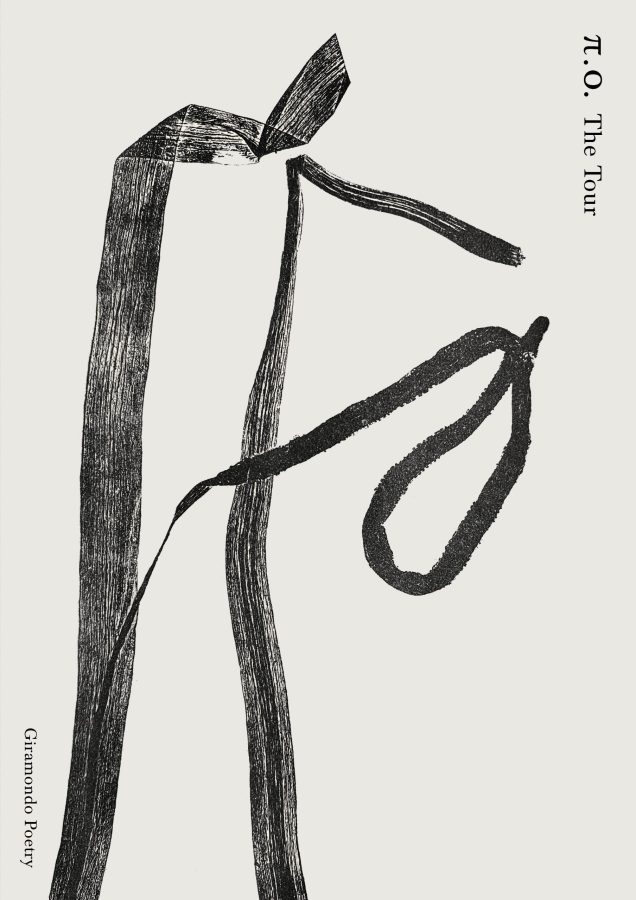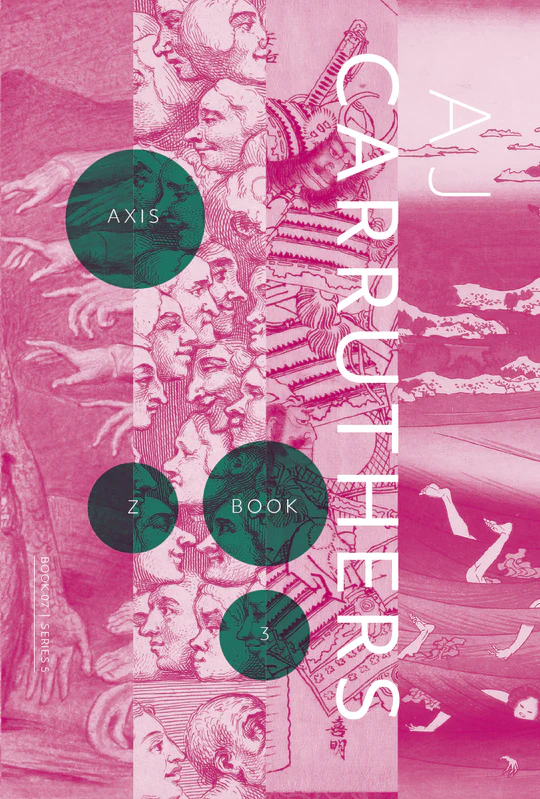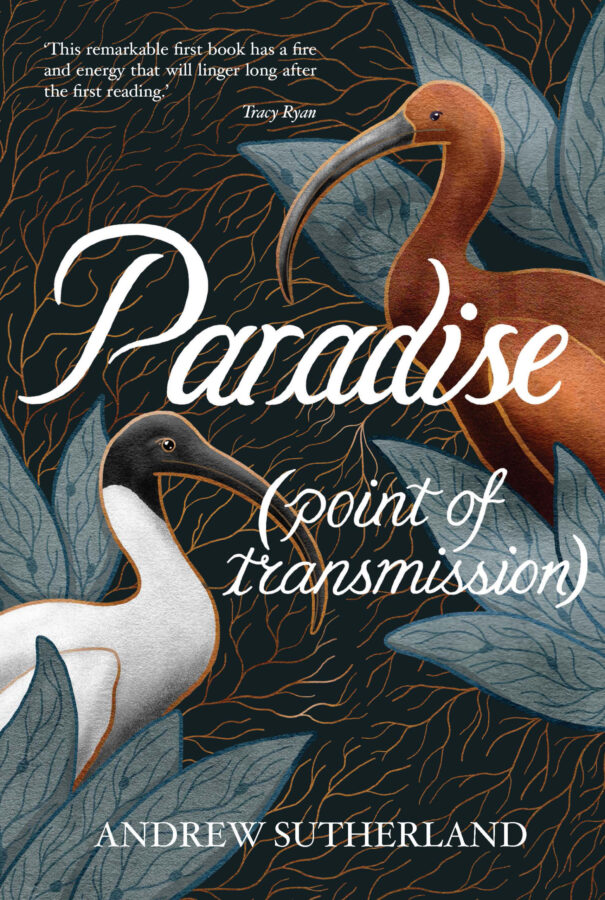One look at the house tells me that I shouldn’t have come. I should have stayed in my hotel or gone to Versailles, which Marina Tsvetaeva adored. The house is unbelievably bright even in the dull evening light of mid-August. A large garbage bin, green with a yellow lid perched on the kerb, can’t spoil the view; just behind it, a few steps to the right of the reddish-brown wooden door stands a motorbike. The two make the house appear homely. The brick house is painted grey white. On the left-hand side of the house rough bricks have been left deliberately unplastered, as if to confirm that it is an old but renovated house. I move to the rear part of the house where a small backyard is fenced by a brick wall. There are three large windows in the wall of the apartment on the second floor. The one furthest has a satellite dish implanted next to it. For a brief moment, I let myself believe that it was by this window that Marina placed her writing desk when she lived here in the 1930s.
I am wrong, because according to Anna Saakyants, Marina’s biographer, her study had two windows. For the first time in her life she had a decent-sized room to work in. From the window near her writing desk she looked at a large chestnut tree in the backyard. Although Saakyants says that the tree was still there in the late 1990s, I can’t locate it. I look for it as I walk along the wall of the backyard draped in ivy and wild-grape vines.
White blinds in one of the windows are drawn down whereas the other window is half open; on the window sill stands a lonely flower pot. I move back to the front of the house. A memorial plaque was installed in the wall in September 2010. The plaque celebrates Marina’s presence in the house. It carries a French translation of the eight lines of her poem ‘Dom’ (The House). The translation is attributed to the Russian-speaking French poet Véronique Lossky. I whisper the words in my terrible French and then pull out from my bag the 1965 Soviet edition of Marina’s selected works. On page 315 I find the whole poem. I read the poem again in Russian and realise that I can’t read it the way Natasha, my friend, used to read it so many years ago.
The heavy wooden door of the house is shut. I knock a few times and then move to the other side of the street. There, sitting against the wall of a house, I begin to scribble and sketch in my notebook, waiting and hoping that the door of the house might suddenly open. Maybe then I could peep inside and see the wooden stairway that Marina daily walked up to reach her apartment on the second floor. The miracle doesn’t happen and after three quarters of an hour I give up and walk back to the métro station to catch the train to my hotel.
As I walk I try to reason myself out of despair. I am disappointed by the shining white appearance of the house. It’s too bright and gay for a poem like ‘Sad’ (Garden) to have been conceived in it. I want the house to be bleak, dark, haunting and haunted; the house Marina described in the poem ‘Dom’ as ‘so less homely.’ I feel cheated; not by her or her poem, but by the happy-looking house.
The fact that the old house in which Marina lived in the 1930s, like the street itself, couldn’t have escaped renovation doesn’t appease me. I know that her house had the street address of 33 rue Jean Baptiste Potin. But the house with the plaque was number 65. I stop walking to check my scribbles in the notebook. And then just for a moment I allow myself to believe the house I saw a few minutes earlier wasn’t the house in which a poem that has haunted me for so many years was written. ‘Don’t be silly,’ I chide myself. And yet the feeling of despair persists and I let it linger on. I like feeling miserable.
That’s what Natasha, too, would tell me often. To Natasha I owe an eternal debt for introducing me to Marina Tsvetaeva’s poetry. From her I learnt to read poetry. ‘Be patient and wait,’ she would often say, ‘for the moment when you are ready to accept it. Then it will reveal itself in its full glory.’
I met Natasha in the summer of 1975 in a mining camp in the Caucasus where I was working as a geologist in a tungsten mine. At night, when the guitars and songs around the campfire fell silent and most other members of the exploration party had gone back to their tents, she would recite Marina’s poems aloud. No commentary, no explanation. There was one she would often start by calling it her favourite poem, but would never finish it. ‘Can’t go on anymore,’ she would say and stop after the first few lines. That poem was ‘Garden’.
I read the poem several times in Moscow after the field season for the year had ended. That was the year when Natasha and I went to see the house in Yelabuga, the house in which Marina died in 1941. The same year we also saw the place on Triyokhprudnyi Street in Moscow, where once stood the small house in which she was born in October 1892. The house had been replaced by a Soviet-style block of apartments. In the autumn of the following year we travelled to Tarus, a little town south of Moscow, to see the country-house of the Tsvetaeva family. However, the highlight for me was the house on Borisoglebskii Street in Moscow. This was where Marina and her teenage daughter Ariadna, nicknamed Alya, were living in 1922 when they set off to join her husband Sergei Efron in Europe.
A year before my departure from Moscow in 1979, Natasha died unexpectedly from complications resulting from an infection in her liver. She left me her 1965 edition of Marina’s selected works, which I have carried with me ever since. The book is dear to me also because it contains Natasha’s handwritten notes and comments in the margins. Some lines are underlined more than once; these four, I think, were especially meant for my attention:
With me in my hand – almost like a handful of dust –
My poems! – I see: in the wind they fly
You are searching for the house, where I was born – or
Where I would die.
The poem is called ‘Tebe – Cherez Sto Let’ (To You – After a Hundred Years). It was written in 1919, most probably in the house on Borisoglebskii Street. It isn’t a mere coincidence that the ‘you’ in Marina’s poem is someone like me, who foolishly believes that by visiting and seeing places where a poet was either born or had died, or where this or that poem was written, he can find an opening to the emotional world of a poem.
On 11 May 1922, Marina and Alya boarded a train at the Vindavskii (now Rizhskii) railway station. The train took them to Riga, where they caught another train to Berlin. Alya in her memoir, Marina Tsvetaeva: My Mother, records a list of thirteen valuable items Marina decided to take with her. It includes two I find most interesting: a papier-mâché pencil holder and a bronze inkpot with a drummer painted on the outside. These items travelled with Marina wherever she went. Marina wrote with a simple wooden pen with a fine nib, notes Saakyants. She was short-sighted and hence her handwriting, when she was young, was ‘…round, fine, clear, straight, and small.’ She wrote ‘…with diligence, patiently drawing each letter, but as she grew older she became more adventurous and used shortened forms of common words.’ With the final versions of her poems she was extremely careful; each poem was copied neatly and precisely before it was sent for typing.
After a four-day journey Marina and Alya arrived in Berlin. Thus began a lengthy exile in Europe. They stayed in Berlin for less than three months, and then moved to Czechoslovakia, first to Prague and then to other small towns and villages around the capital. Leaving Moscow wasn’t easy, although life in the Soviet Union was terribly hard. In a note in her diary in the autumn of 1919 Marina writes:
I live with Alya and Irina (Alya is six and Irina two and seven months) in the house on Borisoglebskii Street. There are two trees outside the house. We live in an attic room, the same room in which Seryozha [Marina’s husband] used to. There is no flour, no bread. Under the writing desk sits a bag with 12 funt [around 5 kg] of potatoes, the leftover from a pood [around 16 kg] loaned to us by our neighbour. This is all we have. I survive on charity meals given to my children…
It was the desire to reunite with her husband that drove her out of Moscow. In spite of her many affairs, Sergei remained the love of her life. In Moscow, she left behind her younger sister Anastasia, and Irina, her youngest daughter, who lay buried in an orphanage cemetery. Three-year old Irina had died from hunger and malnutrition. In a letter written after Irina’s death, Marina’s anguish is palpable:
I am heart broken with grief. On 16 February, my daughter Irina perished in an orphanage; just four days ago; and it is my fault. I was so preoccupied with Alya’s illness (malaria with recurring seizures) and feared leaving her alone to go to the orphanage (I feared the very thing that has happened now)… I was told that Irina didn’t die from any illness but just because she had become very weak; and I wasn’t even able to go to her funeral… The only thing I celebrate in my life is poetry but I didn’t forget Irina because I was busy writing; I didn’t write a word for two whole months.
By the time Marina left Moscow she had already been hailed as one of the most innovative voices of her generation. She had published nine books of poetry, including: Vechernyi Al’bom (Evening Album, 1910), Volshebnyi Fonar’ (Magic Lantern, 1912), Iz Dvukh Knig (From Two Books, 1913), Versty (Miles, 1921) and Lebedyniyi Stan (The Encampment of Swan, 1921). She had also written at least seven plays and published a Russian translation of a popular French novel. She must have hoped that she would be able to support herself and her family. Sergei had no professional qualifications and suffered from several ailments.
The first year in France brought her some success. According to Saakyants, it was the bright ‘star-lit’ year in her life. Unfortunately, the shine soon dulled. Financial difficulties forced the family to move house often. The apartment in the house on rue Jean Baptiste Potin was their fifth home in Paris. They moved into the apartment on the second-floor of this old stone house in July 1934. In October, Marina writes to her friend Anna Teskova, ‘The house lies almost in ruins, but I am hoping that it is sufficiently sturdy to survive the century. It is a wonderful house on a wonderful street with chestnuts; I have a large wonderful room of my own with two large windows, of which outside one I see a large chestnut, now yellow like an eternal sun. It is my only great joy.’
As wonderful as it is, the house doesn’t solve their problems. In July, she writes to a Russian publisher in Paris, explaining her predicament:
I have finally rediscovered the gift of the written word, and found my pen and inkpot. I write after the terrible move to a new place and still feel unsettled and disorganised. There is no gas in the house and no light; and I don’t know when we would have them because there is no money.
In October Marina thanks her friend and supporter Salomea Andronikova for paying the three-month advance on the rent and asks her help to sell five tickets to a reading of her essay My Mother and Music.
She liked the apartment, especially the small backyard garden, although she often described it as ‘hole’ or a ‘wreck’. In an October 1935 letter Marina gives directions to a friend:
… you walk through a gloomy-looking entrance and climb up on the darkest of stairways to reach the second floor; there you’ll find a door on your right; knock and wait.
Princess Zinaida Shakhovskaya, who had also paid her a visit, confirms that the house was dark and gloomy. The house looks ‘…impoverished,’ she recalls in her memoir, ‘and outside the window the view is painfully sad, typical of suburbia; it’s damp, grey and it’s raining.’
Disappointed by the bright white exterior of the house in Paris on that mid-August evening, I searched online for material about it in the 1930s. I was lucky, because I found some black and white photos of the house in the 1930s. The photos were probably taken in late autumn or early winter; the trees in the street are leafless; there is rubble on the side of the street; a horse cart loaded with wood stands in the street facing the camera and there is a horseless carriage stationed on the opposite side of the street. The photos make me happy and sad at the same time; happy, because they support my assumptions about the house, and sad, because a poet like Marina deserved better in life.
The family lived in the house for four years. Marina wrote daily; new poems and prose pieces, revision of old works, neat copies of draft versions, translations and an endless number of letters and notes in her diary. The intensity with which she wrote reminds me of 1934 letter to Khodosevich, a Russian poet living in Paris:
…after all: the less you write, the less you want to write; between you and your table emerges the space of impossibility (very much like the distance between you and the love that you have fallen out of).
The poem ‘Garden’ was finished on Monday, 1 October 1934. The date is recorded in the manuscript as well as in the 1965 edition of her selected works. However, it is quite likely that this is the day on which Marina made a clean copy of the poem. Her papers in the Russian Archive of Literature and Art in Moscow reveal the presence of more than one draft of the poem. Therefore, it isn’t wild to speculate that she might have started working on the poem in September.
The poem was written under trying conditions. The house was cold because there was no gas for heating. ‘I write with my hands trembling,’ she notes in one of her letters and this is ‘either because I am old or perhaps it is too cold in the house.’ Here are the first four lines of the poem:
Za etot ad [For this hell] Za etot bred [For this delirium] Poshli mne sad [Send me a garden] Na staroch let [In my old-age years].
The hellish conditions of her existence are announced emphatically. When I look in the two-volume edition of her works, I find that in September (the exact date is not mentioned) Marina also finished a short, eight-line poem without a title. The two final lines of this short poem indicate an emotional state, similar to that when Garden was written:
Vek moi – yad moi, vek moi – vred moi [My century – my poison, my century – my lesion] Vek moi – vrag moi, vek moi – ad [My century – my enemy, my century – hell].
The final word ‘ad’ [hell] of this poem recurs in the first line of ‘Garden’ and in Russian it perfectly rhymes with the word ‘sad’ [garden].
The poem ‘Garden’ is made up of eight four-line stanzas and employs a flexible rhyme pattern. More interesting is the change in the iambic meter of the stanzas; the first six are structured as iambic dimeter whereas the final two are in the form of iambic tetrameter. The iambic dimeter is very commonly used in Russian folk songs, folk tales and proverbs. As I read the poem aloud I can feel how the rapid tempo of the poem is replaced by a more sedate pace in the final two stanzas. It seems as if the poet is about to give up; she can’t go on any longer with her pleading and arguing; she is depleted, deflated, and drained.
The emotional ambiance of the poem is largely negative. The tone is enhanced by the frequent use of two Russian negatives, ne and ni (both meaning ‘no’). Indeed, Marina also uses double negatives to reinforce the mood, such as bez ni-litsa [without no-face] and bez ni-dushi [without no-soul]. It was explained to me recently that in Russian literary language the use of double negatives is more common than in English, and that their use doesn’t necessarily create a positive equivalent (two negatives don’t make one positive) but accentuates the negative.
I am inclined to read the poem as a prayer. In one of the drafts described and analysed astutely by Tatiyana Gevorkyan, I find the line, ‘bog – sadovod’ [God – the gardener]. Marina deleted the word God from the final version, which I think works well because it the divine presence in the poem is diffused and hence more compelling.
But Marina’s voice isn’t that of a meek believer. The intonations of complaint and rebuke are too audible to ignore and this is what I find most endearing in the poem; Marina won’t give in without an argument. She won’t hesitate for a second to speak her mind. This is what happens in the penultimate stanza of the poem. In the first line, skazhi: – dovolno muki, na – [tell me: the torment is over], she asks her God to confirm that the torment in her life is over. She can’t take it more because as she suggests in the second line, sad odinokii, kak sama [the garden is lonely as me myself], she is alone, like her little garden in the backyard. But in the third line (enclosed in the parenthesis) she warns her God to stay away from her: no okolo i sam ne stan’! [but don’t you dare to come near me!]. The reason is simple and is given in the final line of the stanza: sad odinokii, kak ty sam [the garden is lonely like you yourself].
She wants her God to have mercy on her, but she doesn’t want Him to come near her because He, like the lonely garden, is lonely Himself and thereby would make her even more lonely and destitute. Be kind to me, she say, but keep your distance. She has doubts that her God, who made her endure such suffering, the most horrible of which was the death of her three-year old daughter in the orphanage, would answer her prayers, pleadings and complaints, and send her tortured soul otpushenie [salvation].
I find otpushenie [salvation], the last word of the poem, fascinating. The manuscript of the poem in the archive shows that she laboured to find this particular word; in fact, she considered at least 49 different words before settling on this one. Some of the words she tried are appended with brief comments. For instance, the word omovenie [ablution] she finds good in terms of meaning, but inferior in terms of its sound.
Marina and her family were facing financial troubles at the time the poem ‘Garden’ came into being. But there were two other family matters that could have weighed heavily on her mind. The first was the estrangement between her and Alya, the daughter she adored. In Marina’s own words, Alya ‘… loved [me] utterly till she was fourteen. I was scared of her love because I could see that if I were to die, she would die too. She lived through me.’ Now Alya had grown into a twenty-two-year-old, a sensitive but independent-minded girl. It is possible that Alya wanted to free herself from the influence of her domineering mother. Like all mothers of young daughters, Marina complained about Alya, calling her ‘lazy, rude, disorderly and inactive.’ But I think more troubling for Marina was the realisation that her daughter had become fonder of her father. Her ‘…father,’ Marina writes in a letter to her friend, ‘supports her [i.e. Alya] completely; in his eyes, she is always right and I am the one who is guilty of everything.’ The bitterness and disappointment felt by Marina is hard to overlook.
The second cause for her discontent was Sergei, who had become an active member of a group called the Union of Returnees to the Homeland. The main objective of the union was to encourage members of the Russian émigré community to return to the Soviet Union. In a letter Sergei wrote to his sister in Moscow in August 1934, he complains that ‘…almost all my friends have returned to Soviet Russia. I am happy for them and shudder thinking about my own future. The main obstacle is the family, in fact not the family as such but Marina. It is very hard to talk to her. I really don’t know what to do.’ It seems that Sergei and possibly Alya were trying to convince Marina to return to Moscow with them. Once again, she had found herself at a tricky fork in the road.
Like most writers in exile Marina felt homeless in Paris. Her French was faultless, but the only place she truly felt at home was Russian language and poetry. She had the support of the Russian émigré community, but that support wasn’t enough to earn even a meagre livelihood through reading, writing and translating. As a Russian poet, her readers were in Russia but Soviet Russia was not the land she wanted to return to; it was alien as well as dangerous. In a letter written from Paris to Anna Teskova she describes the conundrum: ‘everyone is pushing me towards Russia, the place I can’t return to. Here I feel useless. And there I am impossible.’
The helplessness of her situation found a compelling expression in ‘Garden’. All imaginative writing, fictional or non-fictional, to paraphrase Mikhail Bakhtin, the Russian literary philosopher, is at its origin autobiographical. Like an insect trapped in amber, a poem preserves the emotional substance of an autobiographical moment. This is what I read and hear in ‘Garden’.
However, if I find this poem remarkable it is also because my response to it is personal. It has found a place in my memory. It has made me undertake two different and yet equally meaningful journeys: one real and physical, the other metaphorical. I have travelled to Paris with this poem searching for its birth place; a journey that has become an extension of my trips with and without Natasha to various places in Moscow as well as in towns far away from the Soviet capital. The metaphorical travel occurred concomitantly, and I hope it continues to happen because only through such travel memory locates the imagined geography in which it can begin to appear real and palpable. And isn’t it true that it’s our ability to remember and forget that makes us human? Unlike Descartes who famously said, I think therefore I am, I believe, perhaps wrongly, that I remember therefore I am.
Alya left for Moscow on 15 March 1937. Six months later her father Sergei joined her. Sergei left France or, some say, escaped in haste. Marina had no choice but to return to Moscow. In 1922 she had left Moscow to reunite with Sergei and now she was leaving Paris to reunite once again with Sergei and Alya.
On 12 July, 1939 Marina and her son Georgii boarded a train at Gare Saint-Lazare that took them to the port city of Le Havre, where they boarded a ship to sail to Leningrad. No one came to farewell them at the station. They left Paris, to use Georgii’s words, alone ‘like dogs…’ with ‘…no flowers or crowns.’ A week later they arrived in Moscow.
Alya was arrested on 27 August 1939 and sent to one of the Gulag camps. She was lucky to survive exile and incarceration. In 1955 she was released, rehabilitated, and returned to Moscow. The other three members of the family were less fortunate. Sergei was arrested in November 1939 and was executed by NKVD agents on 16 October 1941.
Marina was evacuated to Yelabuga with Georgii who had turned sixteen. Her savings were running out fast and all her attempts to find a job had failed. Even young Gerogii despaired at her mother’s erratic behaviour. And finally on 31 August 1941, unable to endure the ordeal, she ended her life. She left a number of notes. In the one addressed to Georgii she wrote: ‘forgive me, but to go on would be worse. I am gravely ill, this is not me anymore. I love you passionately. Do understand that I could not live anymore. Tell Papa and Alya, if you ever see them, that I loved them to the last minute and explain that I had reached a dead end.’
Georgii was conscripted in the army and sent to the front in February 1944. In July he was fatally wounded and died in a field hospital. He was just nineteen.
The day Marina ended her life was a Sunday. And the autumn in Yelabuga, a little town on the river Kama, I suspect, was glorious as always. It was also autumn, when seven years ago, in a gloomy house on rue J. B. Potin in Paris she had begun writing her Garden. Then outside her window stood the chestnut, bright and yellow like the sun, ‘her only great joy in life’.
Perhaps it was the sight of the luminous chestnut that persuaded Marina to ask her God for mercy and protection. But the God, as we know, wasn’t able to save her from the clutches of Stalin and his brutal machinery of repression and killing. The blissful garden she wished for remained elusive. Sadly, she was only one of the millions who suffered; some survived but many died. Her ‘Garden’ is also for them.
Note: This essay uses material from Russian sources. The English translation of Russian texts is the author’s own translation. Read an English paraphrase of the poem ‘Garden’.
References
Maria Belkina, Crossing of Fates, Moscow: Blagovest, 1992 (in Russian)
Ariadana Efron, Marina Tsvetaeva: My Mother, Moscow: Algorithm (in Russian)
Tatyana Gevorkyan, “Over the Draft Pages of Marina Tsvetaeva”, (in Russian), accessed, 20 November 2016
Veronique Lossky, Marina Tsvetaeva: La Maison, 2010 (in French), accessed 18 November 2016
Anna Saakyants, Marina Tsvetaeva: Life and Art, Moscow: Ellis Lak, Moscow, 1999 (in Russian)
Anastasia Tsvetaeva, Memoirs, Moscow: Isograf, 2005 (in Russian)
Marina Tsvetaeva, Selected Works, Moscow: Sovetskii Pisatel’, 1965 (in Russian)
Marian Tsvetaeva, Works, Volume 1: Poems and Plays, Moscow: Khudozhestvennaya Literatura, 1988 (in Russian)
Marian Tsvetaeva, Works, Volume 2: Prose and Letters, Moscow: Khudozhestvennaya Literatura, 1988 (in Russian)
Heritage of Marina Tsvetaeva (Nasledie Mariny Tsvetavy: website)
Acknowledgements: An earlier version of the essay was read by Cassandra Atherton, Mary Besemeres, Gail Jones, Jorge Salavert and Shane Strange. I am grateful for their comments. Elena Mishchenko and Roman Voitekhovich very kindly explained the use of double negatives in Tsvetaeva’s poetry. I am also grateful to Andrew Cross and his son Thomas and Patrice Bruneton and Bernard Mouthier for sending me photos of the house on rue J.B. Potin





